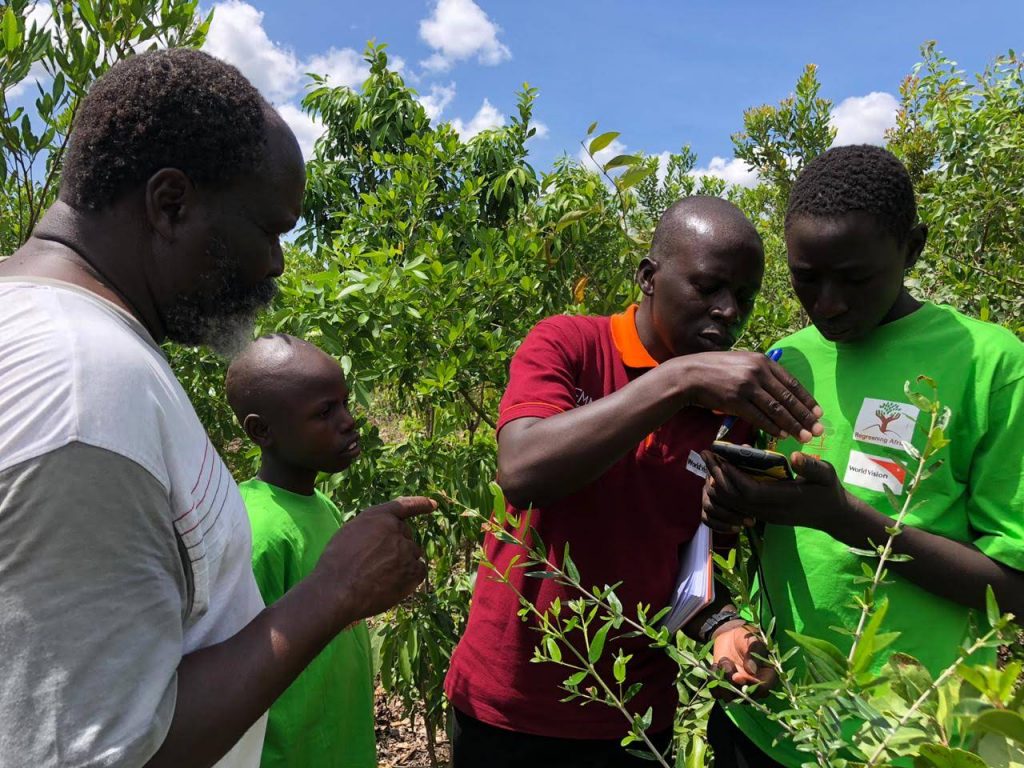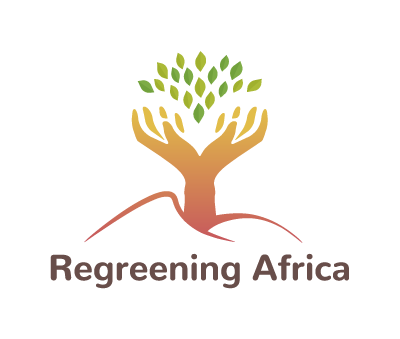by Alan Channer
‘Regreening Africa’ is a multi-country project, funded by the European Union, with the goal of scaling up evergreen agriculture to 500,000 farm households, over an area of over one million hectares.
Patrick Worms, Senior Science Policy Advisor at the World Agroforestry Centre, worked on the conception of the project. He emphasises that ‘”Regreening Africa” can transform the lives of an extremely large number of people on an increasingly buffeted planet’.
Developed by the EverGreen Agriculture Partnership (the forerunner of the Global EverGreening Alliance) and the World Agroforestry Centre (ICRAF), the full name of the project is ‘Reversing Land Degradation in Africa through Scaling-up Evergreen Agriculture’. It is being implemented in Kenya, Rwanda, Ethiopia and Somalia (Somaliland and Puntland), Mali, Niger, Senegal, Ghana, and Burkina Faso.
One of the many strengths of ‘Regreening Africa’ is that it builds on the considerable experience in land restoration of the consortium partners – the World Agroforestry Centre/ICRAF (project lead), World Vision, Catholic Relief Services (CRS), CARE, Oxfam, and Sahel Eco and several others.
Through a separate funding stream from the EU to the German Development Agency, GIZ, the project also integrates the assessment of the Economics of Land Degradation (ELD) in the partner countries and, thereby, makes this an integral part of decision-making and policy strategies.
The objectives of the project are threefold:
1. To strengthen national ability to assess the costs of land degradation and the economic benefits of investment in sustainable land management
2. To provide the surveillance and analytic tools on land degradation dynamics, including the social and economic dimensions, to support strategic decision-making and monitoring for the scaling-up of evergreen agriculture.
3. To support the accelerated scaling-up of evergreen agriculture by smallholder farmers, along with the development of agroforestry value chains.
Strategic stakeholder engagement has already been successfully accelerated across all eight countries by the ‘Stakeholder Approach to Risk-Informed and Evidence-Based Decision Making’ (SHARED).
In an interview for the Alliance Newsletter, Dr Susan Chomba, Project Manager of Regreening Africa, highlights that ‘land restoration needs to take farmers needs and interests first if it is to be meaningful and sustainable’.

Photo credit: Regreening Africa
‘Right now we are focusing on identifying entry points into policy processes that can accelerate scaling up in each of the eight countries,’ continues Chomba, ‘generating scientific evidence of what has worked so far and what needs to be improved, and sharing that evidence in a manner that is easily understood by our stakeholders, including implementing NGOs, policy makers and farmers.’
‘Some of the challenges we are facing include insecurity in Niger, Mali, and Somalia – but working with local partners and governments and building strong relationships with farmers mitigates some of the security risks.
‘Another key challenge is that the behavior change required to promote meaningful restoration takes time, as well as intensive and sustained engagement.
‘As a five-year project, we know we are planting the seeds of what will be seen long after the project has ended.’
The Global EverGreening Alliance is very excited that several of our members are working closely together on this massive scaling-up project, and we look forward to providing insights and updates on its outcomes over the months and years ahead.
Chris Armitage, CEO of the Alliance, notes that ‘the lessons and outcomes of Regreening Africa will be extremely valuable in strengthening the Alliance’s mission and accelerating ongoing efforts, not only in the eight countries, but all across the African continent and the developing world’.
Find out more about Regreening Africa here, or follow their latest updates on Facebook and Twitter.
